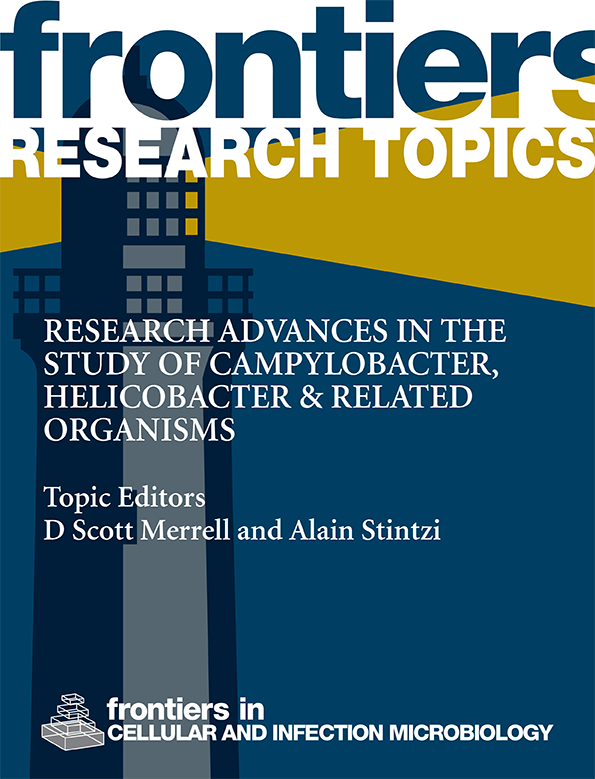Insights into the role of legionella effectors on host metabolic perturbations
IF 4.6
2区 医学
Q2 IMMUNOLOGY
Frontiers in Cellular and Infection Microbiology
Pub Date : 2024-09-11
DOI:10.3389/fcimb.2024.1458276
引用次数: 0
Abstract
军团菌效应因子对宿主代谢扰动作用的启示
军团菌感染是军团病的病原体,对人类健康构成重大威胁。这种感染的致病机理与细菌及其宿主之间复杂的相互作用密切相关,这种相互作用导致了严重的新陈代谢紊乱。这些代谢变化的核心是细菌对脂质代谢的调节,脂质合成和分解的变化会改变膜的组成和功能。这些变化会影响细胞信号传导和免疫反应,进一步导致疾病进展。军团菌还会破坏葡萄糖利用和脂质代谢,改变细胞能量生产和免疫反应。此外,军团菌感染还会扰乱氨基酸和蛋白质代谢,影响蛋白质合成和降解,导致细胞功能和免疫反应发生变化。这篇微型综述强调了军团菌感染中代谢扰动的复杂性及其在宿主-病原体相互作用中的重要性。了解这些代谢变化可为军团病的发病机制提供有价值的见解,并有助于开发新的治疗策略。
本文章由计算机程序翻译,如有差异,请以英文原文为准。
求助全文
约1分钟内获得全文
求助全文
来源期刊

Frontiers in Cellular and Infection Microbiology
IMMUNOLOGY-MICROBIOLOGY
CiteScore
7.90
自引率
7.00%
发文量
1817
审稿时长
14 weeks
期刊介绍:
Frontiers in Cellular and Infection Microbiology is a leading specialty journal, publishing rigorously peer-reviewed research across all pathogenic microorganisms and their interaction with their hosts. Chief Editor Yousef Abu Kwaik, University of Louisville is supported by an outstanding Editorial Board of international experts. This multidisciplinary open-access journal is at the forefront of disseminating and communicating scientific knowledge and impactful discoveries to researchers, academics, clinicians and the public worldwide.
Frontiers in Cellular and Infection Microbiology includes research on bacteria, fungi, parasites, viruses, endosymbionts, prions and all microbial pathogens as well as the microbiota and its effect on health and disease in various hosts. The research approaches include molecular microbiology, cellular microbiology, gene regulation, proteomics, signal transduction, pathogenic evolution, genomics, structural biology, and virulence factors as well as model hosts. Areas of research to counteract infectious agents by the host include the host innate and adaptive immune responses as well as metabolic restrictions to various pathogenic microorganisms, vaccine design and development against various pathogenic microorganisms, and the mechanisms of antibiotic resistance and its countermeasures.
 求助内容:
求助内容: 应助结果提醒方式:
应助结果提醒方式:


